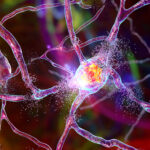Promoting mental well-being goes beyond traditional therapy techniques. This blog explores the emerging field of nutritional psychiatry, highlighting the link between food and mood.
Research by Laura Lachance, MD and Drew Ramsey, MD in the article called Food, Mood, and Brain Health: Implications for the Modern Clinician dives into the science behind why what we eat can significantly impact our mental health. It argues that depression isn’t always caused by psychological factors; biological imbalances triggered by diet and environment can also play a role.
From Skipped Breakfasts to Brain Health
The article opens with a case study of Robert, a man experiencing irritability and low mood. A closer look reveals a potential culprit: his poor diet. Skipping breakfast, relying on processed foods, and a lack of essential nutrients all contribute to Robert’s emotional state.
This isn’t an isolated case. Research suggests a strong correlation between dietary patterns and mental health. The “Western dietary pattern,” rich in processed foods, is linked to an increased risk of depression, ADHD, and cognitive decline. Conversely, traditional diets like the Mediterranean diet, which emphasize whole foods, fish, and healthy fats, offer protection against these conditions.
The Science of Food and Mood
Our brains, demanding organs with high energy needs, rely on specific nutrients to function properly. These include:
- Building Blocks for Neurotransmitters: Brain chemicals like serotonin and dopamine, crucial for mood regulation, require amino acids and B vitamins for synthesis. Deficiencies in these nutrients can contribute to depression and other mental health issues.
- Omega-3 Fatty Acids: Essential for brain cell membranes and neurotransmission, omega-3s boast anti-inflammatory and neuroprotective properties. Diets high in omega-6 fatty acids, common in processed foods, can hinder omega-3 absorption, potentially impacting mood.
- Brain-Derived Neurotrophic Factor (BDNF): This neurochemical plays a vital role in neuroplasticity, the brain’s ability to adapt and learn. Studies show that diets rich in olive oil, nuts, and vegetables can increase BDNF levels, potentially aiding in recovery from depression.
- The Gut Microbiome: A burgeoning area of research, the gut microbiome may influence mental health. Fermented foods and prebiotics can positively impact the gut microbiota, potentially offering another avenue for dietary intervention.
Putting Knowledge into Practice
After Robert made dietary changes like adding breakfast, healthy fats, and fruits/vegetables, he experiences a significant improvement in mood and overall well-being. This highlights the potential of nutritional counseling as a complementary tool for mental health professionals.
Key Takeaways
- Food choices can significantly impact mental health.
- A diet rich in whole foods, healthy fats, omega-3s, and essential nutrients can promote emotional well-being.
- Nutritional counseling can be a valuable tool to complement traditional therapy approaches.
- Consider incorporating a food and mood discussion into your sessions.
Further Exploration
This article provides a springboard for further exploration. Here are 3 relevant research articles to deepen your understanding:
- “A Meta-Analysis of Dietary Patterns and Depression and Anxiety in Adults” (2017) by Algeri et al. This study provides a comprehensive analysis of research on dietary patterns and their association with depression and anxiety in adults. (https://pubmed.ncbi.nlm.nih.gov/24196402/)
- “Nutritional Medicine in the Management of Depression” (2018) by Jacka et al. This article explores the potential of using dietary interventions as a treatment strategy for depression. (https://www.ncbi.nlm.nih.gov/pmc/articles/PMC8664701/)
- “The Role of the Gut Microbiome in Mental Health” (2018) by Dinan et al. This review article delves into the emerging field of gut-brain connection and its implications for mental health. (https://pubmed.ncbi.nlm.nih.gov/22285709/)







